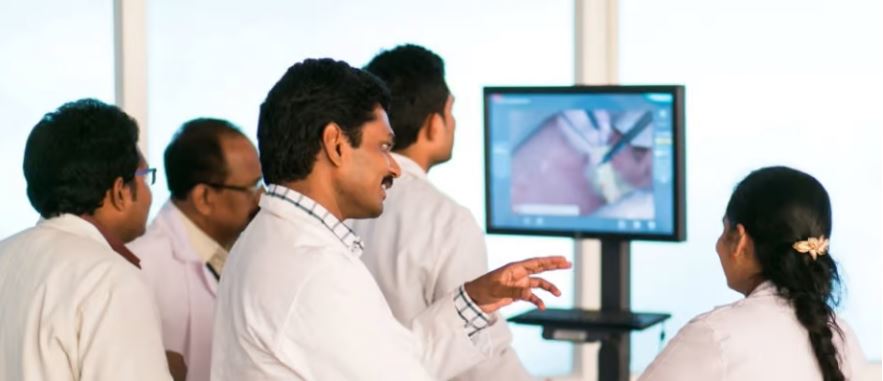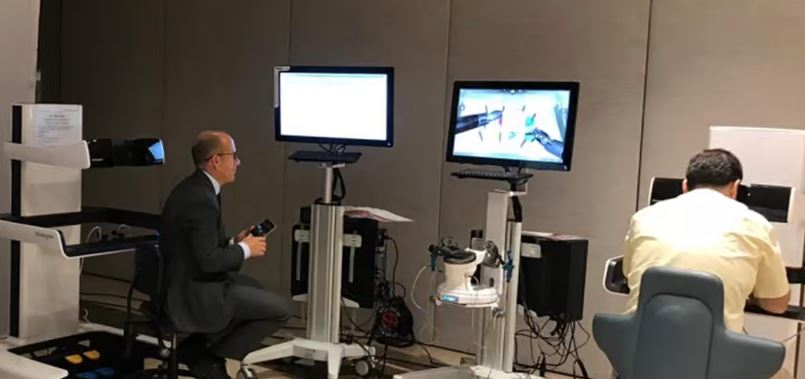The William and Flora Hewlett Foundation: Targeting Education Through Data Science
Company Size
1,000+
Country
- United States
Product
- Automated Student Assessment Prize (ASAP)
Tech Stack
- Data Science
- Machine Learning
Implementation Scale
- Enterprise-wide Deployment
Impact Metrics
- Cost Savings
- Digital Expertise
- Productivity Improvements
Technology Category
- Analytics & Modeling - Data Mining
- Analytics & Modeling - Machine Learning
- Analytics & Modeling - Predictive Analytics
Applicable Industries
- Education
Applicable Functions
- Business Operation
- Quality Assurance
Use Cases
- Automated Disease Diagnosis
- Predictive Quality Analytics
- Remote Collaboration
Services
- Data Science Services
- Software Design & Engineering Services
About The Customer
The William and Flora Hewlett Foundation is a private foundation established by the Hewlett family. It is one of the largest philanthropic organizations in the United States, with a focus on solving social and environmental problems at home and around the world. The foundation supports a wide range of initiatives, including education, global development, and the environment. In the context of this case study, the foundation is particularly interested in improving the quality and efficiency of educational assessments. By leveraging data science and machine learning, the foundation aims to create tools that can assist teachers and educational institutions in grading essays more consistently and affordably, thereby enhancing the overall quality of education.
The Challenge
Education experts agree that essay writing is better than multiple choice tests for measuring essential skills like critical thinking, communication, and collaboration. However, because essays are more expensive and time consuming to grade, most standardized tests are still multiple-choice. In Kaggle’s Automated Student Assessment Prize (ASAP), the Hewlett Foundation challenged participants to build data science tools to help teachers and public education departments to grade essays consistently, quickly, and affordably—without sacrificing quality.
The Solution
Phase 1 of the competition included more than 22,000 hand-scored, long-form student essays that varied in length, topic, and grading protocol. Participants were challenged to develop models that could reproduce the scores given by expert human graders. Along with Kaggle’s community, eight commercial vendors of education software were invited to participate. The top five Kaggle teams outperformed all of the commercial vendors and even showed more consistency than the expert human graders. The winning team, which included a British particle physicist, an American weather analyst, and a German computer science student, ultimately sold the intellectual property behind their solution. Phase 2 tackled the even more difficult problem of short answers. The data included more than 27,000 hand-scored short answers around 50 words, covering topics from English to science. Results showed great promise: The top teams did not outperform human graders, but did outperform an automated benchmark by almost 20%. The winning teams presented their solutions to the sponsors and publicly released all code and writeups for use in future research.
Operational Impact
Quantitative Benefit

Case Study missing?
Start adding your own!
Register with your work email and create a new case study profile for your business.
Related Case Studies.

Case Study
IoT platform Enables Safety Solutions for U.S. School Districts
Designed to alert drivers when schoolchildren are present, especially in low-visibility conditions, school-zone flasher signals are typically updated manually at each school. The switching is based on the school calendar and manually changed when an unexpected early dismissal occurs, as in the case of a weather-event altering the normal schedule. The process to reprogram the flashers requires a significant effort by school district personnel to implement due to the large number of warning flashers installed across an entire school district.

Case Study
Revolutionizing Medical Training in India: GSL Smart Lab and the LAP Mentor
The GSL SMART Lab, a collective effort of the GSL College of Medicine and the GSL College of Nursing and Health Science, was facing a challenge in providing superior training to healthcare professionals. As clinical medicine was becoming more focused on patient safety and quality of care, the need for medical simulation to bridge the educational gap between the classroom and the clinical environment was becoming increasingly apparent. Dr. Sandeep Ganni, the director of the GSL SMART Lab, envisioned a world-class surgical and medical training center where physicians and healthcare professionals could learn skills through simulation training. He was looking for different simulators for different specialties to provide both basic and advanced simulation training. For laparoscopic surgery, he was interested in a high fidelity simulator that could provide basic surgical and suturing skills training for international accreditation as well as specific hands-on training in complex laparoscopic procedures for practicing physicians in India.

Case Study
Implementing Robotic Surgery Training Simulator for Enhanced Surgical Proficiency
Fundacio Puigvert, a leading European medical center specializing in Urology, Nephrology, and Andrology, faced a significant challenge in training its surgical residents. The institution recognized the need for a more standardized and comprehensive training curriculum, particularly in the area of robotic surgery. The challenge was underscored by two independent studies showing that less than 5% of residents in Italian and German residency programs could perform major or complex procedures by the end of their residency. The institution sought to establish a virtual reality simulation lab that would include endourological, laparoscopic, and robotic platforms. However, they needed a simulator that could replicate both the hardware and software of the robotic Da Vinci console used in the operating room, without being connected to the actual physical console. They also required a system that could provide both basic and advanced simulation training, and a metrics system to assess the proficiency of the trainees before they performed surgical procedures in the operating theater.

Case Study
Edinburgh Napier University streamlines long-distance learning with Cisco WebEX
• Geographically dispersed campus made in-person meetings costly and inconvenient.• Distance-learning programs in Malaysia, India, and China required dependable, user-friendly online tools to maximize interaction in collaborative workspaces.• Virtual learning environment required a separate sign-in process, resulting in a significant administrative burden for IT staff and limited adoption of collaboration technology.

Case Study
8x increased productivity with VKS
Before VKS, a teacher would spend a lot of time showing a group of 22 students how to build a set of stairs within a semester of 120 hours. Along with not leaving the teacher much time to provide one-on-one support for each student to properly learn carpentry, it also left a considerable amount of room for error. Key information would be misinterpreted or lost as the class was taught in the typical show-and-tell way.

Case Study
Scalable IoT Empowering GreenFlex's Sustainable Growth
GreenFlex, a company that supports sustainable development, decarbonization, and energy efficiency, faced several challenges in its quest to expand its business. The company needed to deploy a robust and sustainable IoT technology to support its growth. It was crucial for them to monitor and control devices at customer sites in a safe and reliable manner. They also needed to integrate devices across a range of communication protocols and gather and act on data to meet efficiency targets. GreenFlex had previously built IoT capabilities into its digital platform, GreenFlexIQ, to monitor and manage customer sites remotely. However, they soon realized that they needed a new platform to support their ambitions. They needed a platform that could scale to connect more devices for production management and make it easier for the operations team to manage devices in the field.


